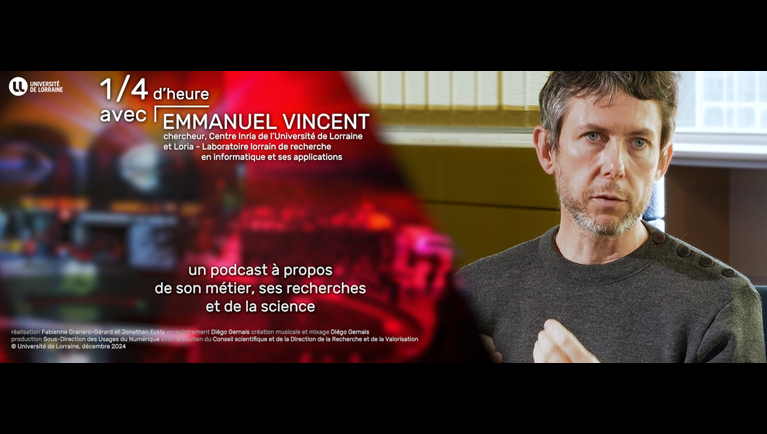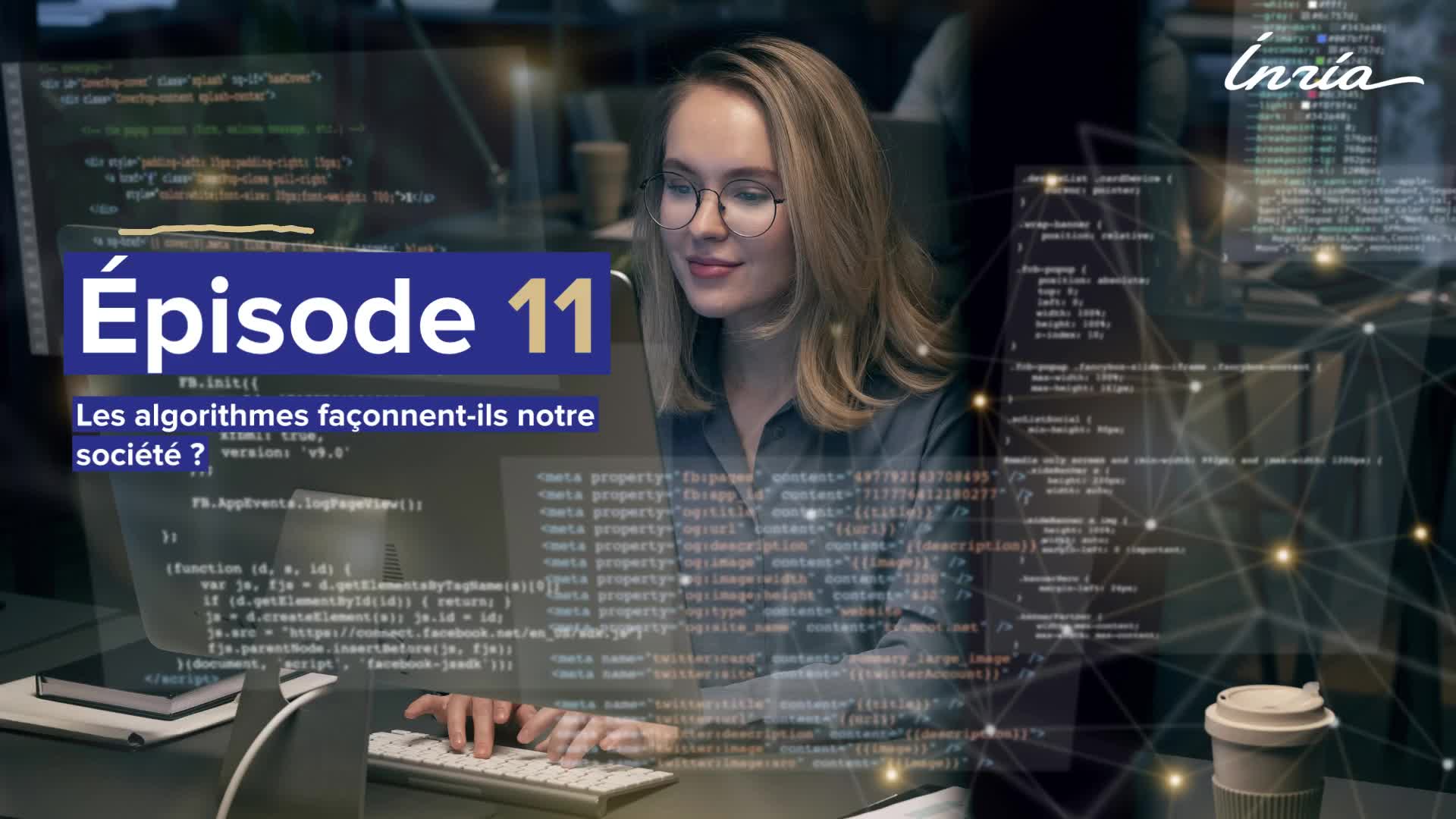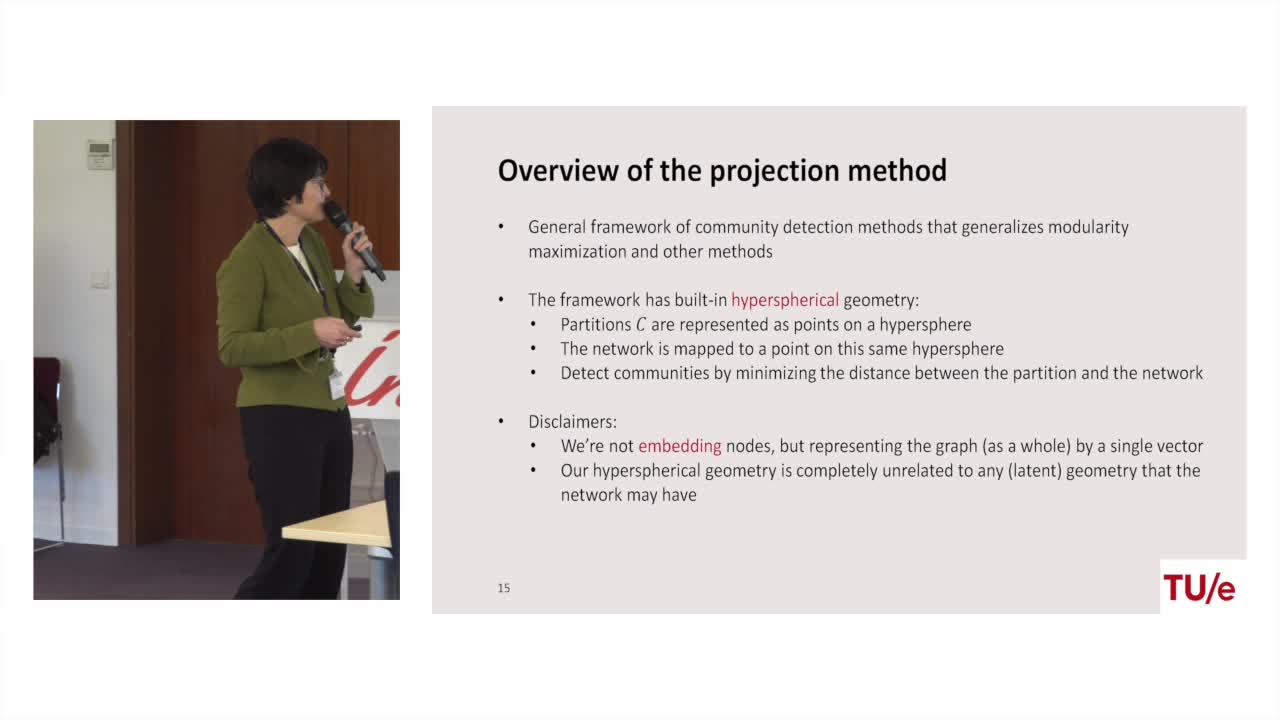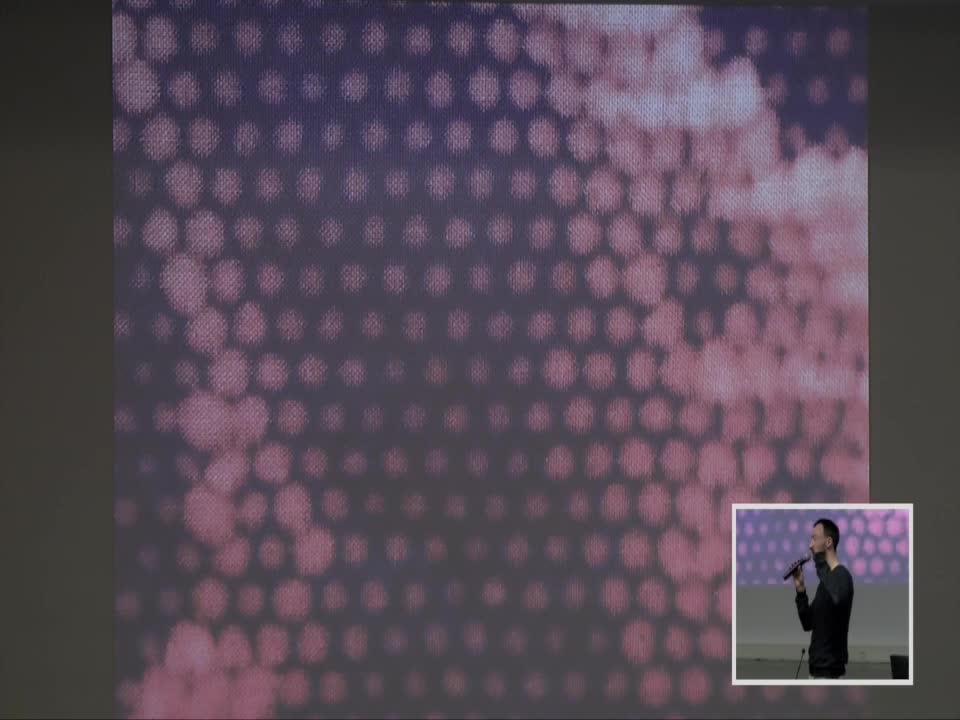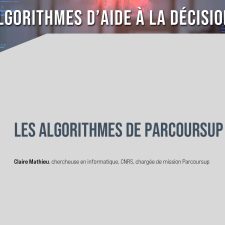Notice
Speculating Seriously in Distributed Computing
- document 1 document 2 document 3
- niveau 1 niveau 2 niveau 3
Descriptif
If we are ever to understand what computers can collectively do, we need a new theory of complexity. Recent evolutions, including the cloud and the multicore, are turning computing ubiquitously distributed, rendering the classical complexity theory of centralized computing at best insufficient. A complexity theory for distributed computing has emerged in the last decades, measuring complexity for each specific model of the networked environment, represented by an adversary that may provoke asynchrony, failures, contention, etc. This one adversary - one result approach led to an exponential proliferation of seemingly unrelated results, none of which captures current practices in the development of distributed applications. Instead, applications rely on speculative algorithms that perform well when the environment behaves nicely and gracefully degrades if the environment is more hostile, considering thereby several adversaries at the same time. With no underlying theory, the proposed speculative algorithms lack however rigor and there is anecdotal evidence of their fragility. It is moreover usually impossible to predict their behavior or determine whether their limitations are related to fundamental impossibilities or artifacts of specific infrastructures. The goal of this talk is to discuss a glimmer of a theory of speculative distributed computing.
Thème
Documentation
Liens
Le but du colloquium est d’offrir une vision d’ensemble des recherches les plus actives et les plus prometteuses dans le domaine des Sciences et Technologies de l’Information et de la Communication (STIC). Nouveaux thèmes scientifiques
Support de présentation de la conférencenouveaux domaines d’application
Avec les mêmes intervenants et intervenantes
-
A brief history of atomic commitment
GuerraouiRachidCet exposé retrace brièvement l'historique de l'algorithmique répartie à travers l'un de ses problèmes les plus fondamentaux: la validation atomique.
Sur le même thème
-
La voix, une donnée identifiante à protéger
VincentEmmanuelEmmanuel Vincent, chercheur au Centre Inria de l'Université de Lorraine et au Loria (Laboratoire lorrain de recherche en informatique et ses applications), présente sa recherche sur l'anonymisation de
-
Podcast 1/4 d'heure avec : Emmanuel Vincent, chercheur au Centre Inria de l'Université de Lorraine …
VincentEmmanuelRencontre avec Emmanuel Vincent - chercheur au Centre Inria de l'Université de Lorraine et Loria (Laboratoire lorrain de recherche en informatique et ses applications).
-
Machines algorithmiques, mythes et réalités
MazenodVincentVincent Mazenod, informaticien, partage le fruit de ses réflexions sur l'évolution des outils numériques, en lien avec les problématiques de souveraineté, de sécurité et de vie privée...
-
Désassemblons le numérique - #Episode11 : Les algorithmes façonnent-ils notre société ?
SchwartzArnaudLima PillaLaércioEstériePierreSalletFrédéricFerbosAudeRoumanosRayyaChraibi KadoudIkramUn an après le tout premier hackathon sur les méthodologies d'enquêtes journalistiques sur les algorithmes, ce nouvel épisode part à la rencontre de différents points de vue sur les algorithmes.
-
Les machines à enseigner. Du livre à l'IA...
BruillardÉricQue peut-on, que doit-on déléguer à des machines ? C'est l'une des questions explorées par Éric Bruillard qui, du livre aux IA génératives, expose l'évolution des machines à enseigner...
-
Désassemblons le numérique - #Episode9 : Bientôt des supercalculateurs dans nos piscines ?
BeaumontOlivierBouzelRémiDes supercalculateurs feraient-ils bientôt leur apparition dans les piscines municipales pour les chauffer ? Réponses d'Olivier Beaumont, responsable de l'équipe-projet Topal, et Rémi Bouzel,
-
Projection methods for community detection in complex networks
LitvakNellyCommunity detection is one of most prominent tasks in the analysis of complex networks such as social networks, biological networks, and the world wide web. A community is loosely defined as a group
-
Lara Croft. doing fieldwork under surveillance
Dall'AgnolaJasminLara Croft. Doing Fieldwork Under Surveillance Intervention de Jasmin Dall'Agnola (The George Washington University), dans le cadre du Colloque coorganisé par Anders Albrechtslund, professeur en
-
Containing predictive tokens in the EU
CzarnockiJanContaining Predictive Tokens in the EU – Mapping the Laws Against Digital Surveillance, intervention de Jan Czarnocki (KU Leuven), dans le cadre du Colloque coorganisé par Anders Albrechtslund,
-
Ivan Murit - Processus de création d'images
MuritIvanJe vais présenter une manière décalée d'aborder les outils d'impression. Pour cela nous ne partirons pas de l'envie d'imprimer une image préexistante, mais d'avant cela : comment se crée une forme
-
Le Creativ’Lab, au cœur de la robotique et de l’intelligence artificielle (ASR N°18 - LORIA)
HénaffPatrickLefebvreSylvainLe LORIA, laboratoire phare de la Grande Région dans le domaine de l’informatique, propose de rendre la recherche plus ouverte, plus collaborative, plus ambitieuse… en un mot, plus créative, à travers
-
Les algorithmes de Parcoursup
MathieuClaireL’objectif de la journée « Algorithmes d’aide à la décision publique » était de sensibiliser le grand public aux rôles des algorithmes d’aide à la décision publique utilisés par exemple pour l





